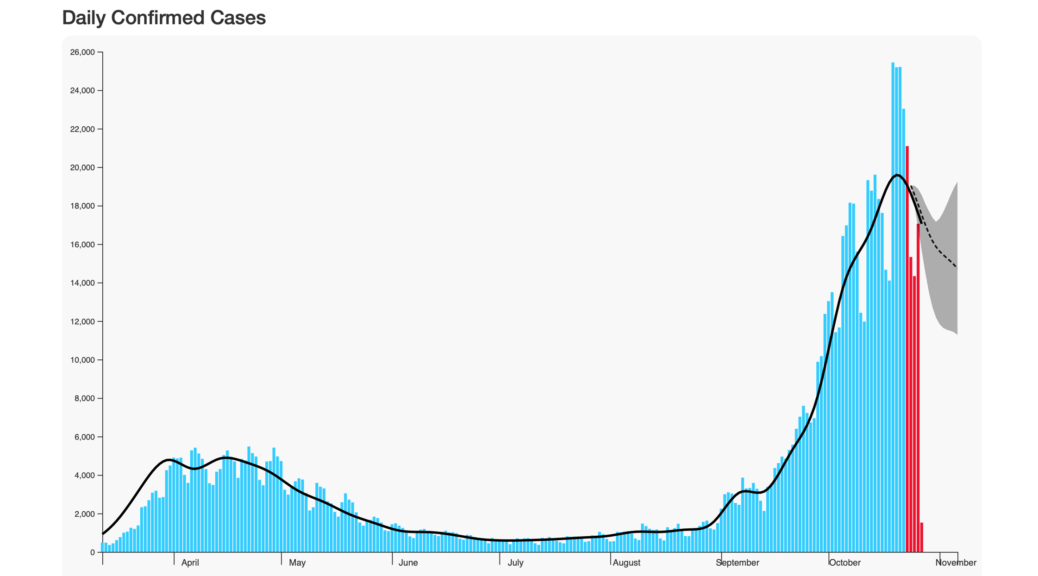
On Friday 29th January, the Scottish Government announced that Na h-Eileanan Siar (the Western Isles) is being put into Level 4 lockdown, following a surge of new cases.
On the basis of the data available to us and our modelling approach, we’re not convinced about this decision: it appears to have be made on the basis of out-of-date analysis in an area which turned the corner on this outbreak some time ago.
Our emergent analytics, which generate fresh outlooks every day, suggest that the peak of the outbreak here was passed on 19th January and that it has declined, on multiple metrics, since then.
Continue reading Lagging Decisions, Big Consequences? →

We – as a society – had the opportunity to prevent SARS-CoV-2 becoming endemic. We largely wasted it, initially by not locking down early enough or for long enough to remove it from the population. Nor did we use the lockdown period to set up effective data collection, testing, tracking and analytic tools to enable rapid and fine-grained response to predicted changes in incidence (it’s a truism that, by the time you’re working with actual data, you’re already behind in your response).
Public policy decisions are therefore based on incomplete and lagging data, partial models and on individual and committee opinion (however well qualified the participants) rather than being informed by data-driven modelling of potential outcomes. We are also behaving as though we’re dealing with a static target rather than a continuously evolving situation, one where an unintended consequence of partial and incomplete restrictions is that it effectively selects for different strains of the virus, as it evolves to cope with changes in population behaviour. This virus, like any other, has been mutating since before it collided head-on with our species, and it continues to evolve as it seeks selective advantage in exploiting its human host population, at any given time. Continue reading Time for a different approach? →
Two Worlds is an AI research consultancy and incubator, specialising in complex, adaptive systems. We create strategies, technologies and services that encompass advanced data discovery and fusion AI/Machine Learning, IoT networks, augmented and mixed reality systems.


